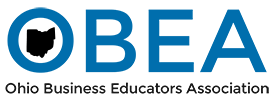While we are in the midst of summer, it is not too early to start thinking about the new school year and the upcoming OBTA professional development conference. Summer is also an excellent time to reflect on our teaching and think about ways to improve student learning. Of course, it is also a very good time to get some rest and catch up with friends and family.
I like to encourage lifetime learning, especially among teachers. Several of my colleagues have just recently returned to school to work on their Ph.D.’s. While returning to school for advanced degrees is an admirable endeavor, some of us are limited in terms of time and money. Of course, this is also a concern for many of our students, especially concerns for the total cost of a college degree.
The cost of higher education is a hotly debated topic, but I will steer clear of politics in this message. Since many of our students come to us for all sorts of academic and employment related advice, we need to be prepared to discuss these items in depth. Specifically, the growing costs and changing landscape of higher education require us to think harder about the advice we give to aspiring students.
Yes, the costs of higher education are rising. However the data still support the value of college education. Consider unemployment rate by educational attainment. The Bureau of Labor Statistics reported that for May 2016, those with less than a high school diploma had an unemployment rate of 7.1%, those with a high school diploma and no college had an unemployment rate of 5.1%, and those with a bachelor’s degree or higher had an unemployment rate of 2.4%. Similar differences are also seen with median weekly earnings data.
The point is that while college can be expensive, the economic return is seen in lower unemployment and higher earnings. To make this return even more impressive, aspiring college students should think about not only the school or schools they select, but also how they handle student loan debt, specifically with respect to the concept of interest capitalization.
Concerns about amassing unwieldy debt are justified, but there are ways to address the concerns including considering forgoing the traditional residential college experience with living at home. Additionally, many of our community colleges in the regional campuses of state schools provide an excellent education for relatively low cost. While the politicians and legislators eventually may work out some other way to address the issues of rising costs, we educators can help students get creative about how to address costs on their own. This also provides focus on a key topic that is often lost in secondary and post-secondary eduation: financial literacy.
Whether you are working on an advance degree or not, you can increase your knowledge and enhance your classes at OBTA’s upcoming Professional Development Conference in Columbus, Ohio. The conference organizers are hard at work putting together a wonderful event that will include sessions for both secondary and postsecondary educators. More information about many of the sessions is available in this issue of the Beacon.
Please enjoy the rest of your summer, and I hope to see you in Columbus on September 30.
My best,
Thomas A. Mays
President, OBTA


